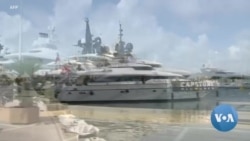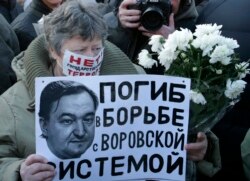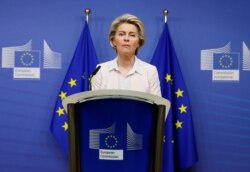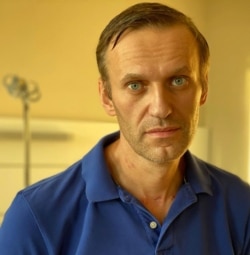Human rights abusers will face asset freezes and travel bans under new legislation adopted by the European Union.
The so-called Magnitsky laws, officially titled the EU Human Rights Global Sanctions Regime, would target those accused of crimes including genocide, torture, assassination and arbitrary detentions.
The European Union officially adopts the legislation on December 10 — World Human Rights Day.
Bill Browder, a financier at Hermitage Capital Management who has campaigned for similar legislation in countries around the world, said getting Europe on board is a major milestone.
“You have 27 countries, and a number of these countries are countries that dictators and kleptocrats like to visit. They go to the south of France. They go to Sardinia. They go to Spain,” Browder told VOA.
“So, there’s something there that they really covet. And so, if these laws, if the EU Magnitsky Act actually is implemented and implemented widely, I think it could have a dramatic impact on the behavior of human rights violators around the world.”
The United States, Britain and Canada already have Magnitsky laws. They are named after Browder’s lawyer, Sergei Magnitsky, who died in a Russian jail in 2009 after uncovering a $230 million tax fraud by state officials. He had been beaten by prison guards and denied medical treatment.
Speaking in Brussels last month, EU Commission President Ursula von der Leyen said Europe has the tools to punish human rights abusers.
“Nothing can bring Sergei Magnitsky back,” von der Leyen said. “But there are things we can do to honor his memory. We can hold accountable those who violate the most basic human rights. We can act so that crimes like Magnitsky’s death do not happen again.”
“Human rights must be sacred everywhere, from Belarus to Syria, from Myanmar to Venezuela, from Russia to China,” she added. “It shouldn’t matter where the violation took place. If there is a crime, Europe must have the tools to act.”
But the EU legislation will not bear Magnitsky’s name. The Dutch government vetoed that idea, arguing that no one country should feel targeted.
Russia’s main opposition leader Alexei Navalny, who was poisoned with a nerve agent earlier this year, spoke to EU lawmakers via video link last month as they debated the legislation.
“The main question we should ask ourselves is why are these people poisoning, killing and fabricating elections? And the answer is very, very simple: money. So, the European Union should target the money and Russian oligarchs, not just old oligarchs, but also new ones like this circle of Mr. Putin,” Navalny told MEPs November 27.
Russian President Vladimir Putin denies involvement in Navalny’s poisoning.
In addition to those responsible for Magnitsky’s death, there are numerous obvious targets for Europe’s new Magnitsky laws, said Browder.
“The killers of [Washington Post columnist] Jamal Khashoggi, the … 19 Saudis, plus [Saudi Crown Prince] Mohammed Bin Salman, should be added to this list. The Chinese officials involved in the Uighur genocide. The Chinese officials involved in the Hong Kong repression. The Lukashenko regime. The Burmese officials involved in the Rohingya genocide. Just to name a few.”
Critics say it is still possible for individual EU member states to veto any measures proposed under the new law, and countries with warmer ties to the Kremlin such as Hungary and Cyprus could block any sanctions.








